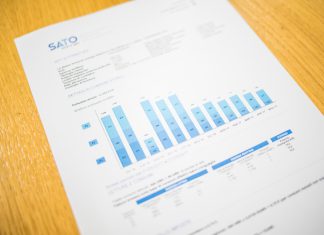In August, financial institutions must meet a deadline for a MiFID II update that focuses on sustainability and harmonises environmental, social and governance aspects (ESG) in the investment space. everyoneINVESTED concept manager Laurent Lamblin outlines how this change could impact investing.
ESG has become an increasingly dominant topic across most industries. Governments came together in 2021 for COP26 to reaffirm their commitments to fighting climate change and bringing the world into a new era. However, this is not a charge solely led by governments, with more and more companies cropping up to provide ESG-related services. Among these are numerous FinTech companies offering products such as ethical investing or financial inclusivity.
With ESG’s growing importance, it is unsurprising that regulators around the world are starting to address it more. For example, the European Banking Authority recently published the final draft for implementing technical standards on Pillar 3 disclosures for ESG risks. The role of this change is to establish comparable disclosures to show how climate change might exacerbate other risks within an institution’s balance sheet.
A more pressing recent regulatory update are the new changes made by the European Commission to MiFID II. Under the MiFID II changes, from August 2022, asset managers will need to include sustainability factors, risks and preferences into suitability assessments.
Speaking on the impending regulation, Lamblin said, “The changes in the MiFID II regulation are part of a broader initiative from the EU on sustainable development. According to the European Green Deal objectives, it aims to put sustainability at the heart of the financial system to transform Europe’s economy.” He continued to state that the update impacts financial advice and will be felt within portfolio construction. “The new regulation will impact all financial market participants.” This means the wealth and asset managers, issuing companies but also data providers.
Regulatory changes are not often met with welcome arms. Instead, it is typically seen as just another legal must-do. However, Lamblin believes this change can be a business driver. “With behavioural risk profiling, we have proven that it is feasible to turn compliance into commercial performance. We believe the upcoming EU sustainability regulation could prove to be yet another commercial opportunity for the industry.”
Financial institutions have a steady stream of regulations and deadlines to meet. Missing the deadline for these MiFID II is not an option, and firms are rushing to get their systems ready. However, it is not as simple as meeting this one deadline; they will need to position themselves for the future changes which are yet to be published. Lamblin said, “Let’s put it differently, wealth managers that don’t have a clear direction will face some tough times ahead. And it is not only a questionnaire that needs to be ready, but also its translation into advice, portfolios and reporting.”
One of the other problems Lamblin foresees is whether firms will have enough products that meet the ESG preferences of their clients from day one. Of course, ESG is not a new concept, and firms have been offering related products for many years. But there has been a sharp rise in the number of people interested in these concepts and firms need to support their preferences.
If companies can streamline the investment processes, it could even encourage more people to invest. Lamblin said, “Sustainable investments have already proven to be a trigger to convince the young to invest (more). The MiFID II guidelines will only strengthen their resolve to invest by favouring sustainable businesses. The investment process/product link has to be clear and straightforward enough so that the young see they have a meaningful impact on companies and society.”
However, the regulation could encourage traditional investors to stick with simple systems. “In case of the traditional investors, the new regulation might – a bit counterintuitively – have an even more significant impact. In case of a cumbersome process, some clients might be tempted to turn to less complex execution-only investment processes, while others might not fully grasp the impact of their choices and end up with solutions that will not fit their expectations.”
With the broader focus being put on ESG, it begs the question of whether it could be another nail in the coffin for assets such as oil. While the regulation could encourage some products to move away from products aimed at environmental factors, other portfolios, even those aimed at social and governance values, might continue to hold them. “Given their current importance in our economy, excluding the fossil energy stocks of the investment universe is a bridge too far that not all investors will be willing to cross. So it is still up to the end investor to determine how far they are ready to go.”
How to get ready
As mentioned, firms do not have the choice to avoid meeting the regulatory deadline. They will need to get their systems ready, and technology will be “essential at all stages,” Lamblin stated.
For example, when assessing clients’ preferences, behavioural technology will be necessary to understand the complexity of the client’s choices. Furthermore, portfolio construction and reporting will need to adjust to meet preferences.
“Level 2 guidance has not been finalised yet,” Lamblin added. “An extra challenge for the investment industry is that sustainability data is fragmented non-standardised, and conflicts among different providers for the same metric are still common. Therefore, the required adjustments need to be implemented flexibly to guarantee compliant processes from the start.”
The regulation could also mean changes will need to be made to the risk profiling processes. Lamblin said, “Regulators have already made clear that this new regulation has no impact on the client’s risk preferences, but it undeniably causes complex questionnaires to become even more complicated.” Customer experiences, particularly in the digital world, have become increasingly important. Firms will need to ensure these deeper questionnaires are not laborious, which could put people off investing and creating portfolios. Handling this step effectively could make customers happier and even boost retention rates, Lamblin said.
When firms prepare their systems for this change, flexibility should be a priority. Lamblin stated that MiFID had numerous changes over the years, which is not going to stop now. Therefore, firms need to ensure they can continue adapting to whatever comes next. Lamblin said, “There are two approaches to that: seeing each change as just another obligation or seizing the opportunity to fine-tune and even future-proof all your investment processes to remain on top of inevitable amendments to ESG-related regulation.”
How everyoneINVESTED helps
everyoneINVESTED helps financial institutions leverage this new MiFID II regulation in a way that improves investment journeys that promote strong conversion and retention. “We look beyond regulation by focusing on the client and applying behavioural insights,” Lamblin said. “There is no point in scaring clients and prospects with complicated processes or by complexifying investing to the point that people don’t understand or can’t relate to the products offered. The last thing we want is to disappoint a client after buying a product.”
The company closely monitors the market and explores additional tools to support regulatory changes. For example, it is releasing an extra ESG module in its Profiler suite, which financial institutions can use to understand customers better. This module integrates into existing banking services to improve the customer experience and give them access to more relevant advice.
ESG regulations will continue to hit the market. Lamblin concluded, “We are looking forward to the upcoming evolutions of that regulation because it can only help reach the general objectives we all have of getting a better future, not only for our wallet but also for the planet.”
Copyright 2022 FinTech Global











